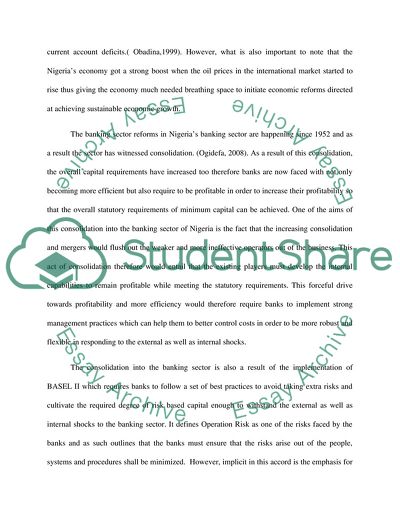Cite this document
(Management Accounting Tools in Decision Making within the Nigerian Banking Sector Research Proposal Example | Topics and Well Written Essays - 1250 words, n.d.)
Management Accounting Tools in Decision Making within the Nigerian Banking Sector Research Proposal Example | Topics and Well Written Essays - 1250 words. https://studentshare.org/finance-accounting/1720216-the-relevance-of-management-accounting-tools-and-techniques-in-decision-making-within-the-nigerian-banking-sector
Management Accounting Tools in Decision Making within the Nigerian Banking Sector Research Proposal Example | Topics and Well Written Essays - 1250 words. https://studentshare.org/finance-accounting/1720216-the-relevance-of-management-accounting-tools-and-techniques-in-decision-making-within-the-nigerian-banking-sector
(Management Accounting Tools in Decision Making Within the Nigerian Banking Sector Research Proposal Example | Topics and Well Written Essays - 1250 Words)
Management Accounting Tools in Decision Making Within the Nigerian Banking Sector Research Proposal Example | Topics and Well Written Essays - 1250 Words. https://studentshare.org/finance-accounting/1720216-the-relevance-of-management-accounting-tools-and-techniques-in-decision-making-within-the-nigerian-banking-sector.
Management Accounting Tools in Decision Making Within the Nigerian Banking Sector Research Proposal Example | Topics and Well Written Essays - 1250 Words. https://studentshare.org/finance-accounting/1720216-the-relevance-of-management-accounting-tools-and-techniques-in-decision-making-within-the-nigerian-banking-sector.
“Management Accounting Tools in Decision Making Within the Nigerian Banking Sector Research Proposal Example | Topics and Well Written Essays - 1250 Words”. https://studentshare.org/finance-accounting/1720216-the-relevance-of-management-accounting-tools-and-techniques-in-decision-making-within-the-nigerian-banking-sector.


